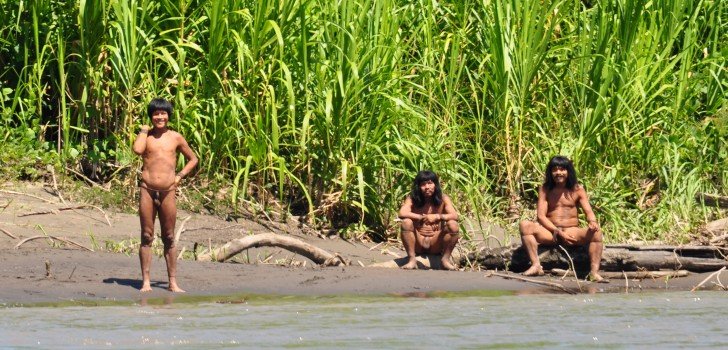Government officials as well as Indian activists are being forced to reconsider their “no contact” policies as indigenous tribes are beginning to initiate contact with the outside world. In Peru and parts of Brazil, the Amazon rainforest is beginning to shrink, reducing the area that such indigenous tribes used to hide in isolation.
José Carlos Meirelles, an activist who has worked to protect the isolated tribes of the Amazon rainforest for over 40 years told National Geographic, “The people are coming out. I believe we’re going to see a succession of first contacts in the coming ten years.”
As contacts with locals are becoming more frequent, Peruvian officials sent an expedition to make a “controlled contact” with the Mascho-Piro tribe that was initiating the contact.
Before, several locals had filmed and taken pictures of themselves interacting with members of the tribe. While most of the interactions were harmless, one 22-year-old man was shot in the heart with an arrow and died in the village. The reason for the altercation is still unknown.
The Mascho-Piro tribe first began making their appearances in the area around 3 years ago. Tensions are beginning to rise between the tribe and other inhabitants of the area that aren’t used to sharing space.
The goal of the controlled expedition sent by the Peruvian government is to usher the Mascho-Piro into contact with the outside world. This way there is some sense of control over the inevitable, as the contact now appears certain to happen.
Movements to initiate contact are being met with harsh criticism, as some believe it will destroy the protection of other indigenous tribes. An adviser to the Ministry of Culture, Luís Felipe Torres told National Geographic, “We’re between the sword and the wall. This is an emergency that requires a concrete response.”
As the rainforest around Peru and Brazil will continue to decrease in the next few decades, more and more tribes will be exposed to contact with the outside world. The “no contact” policies that were once in place are no longer an effective way of dealing with the tribes.
Officials and activists will now have the tough task of respecting the tribes while worrying about the protection of them as well as their neighbors in the outside world.
